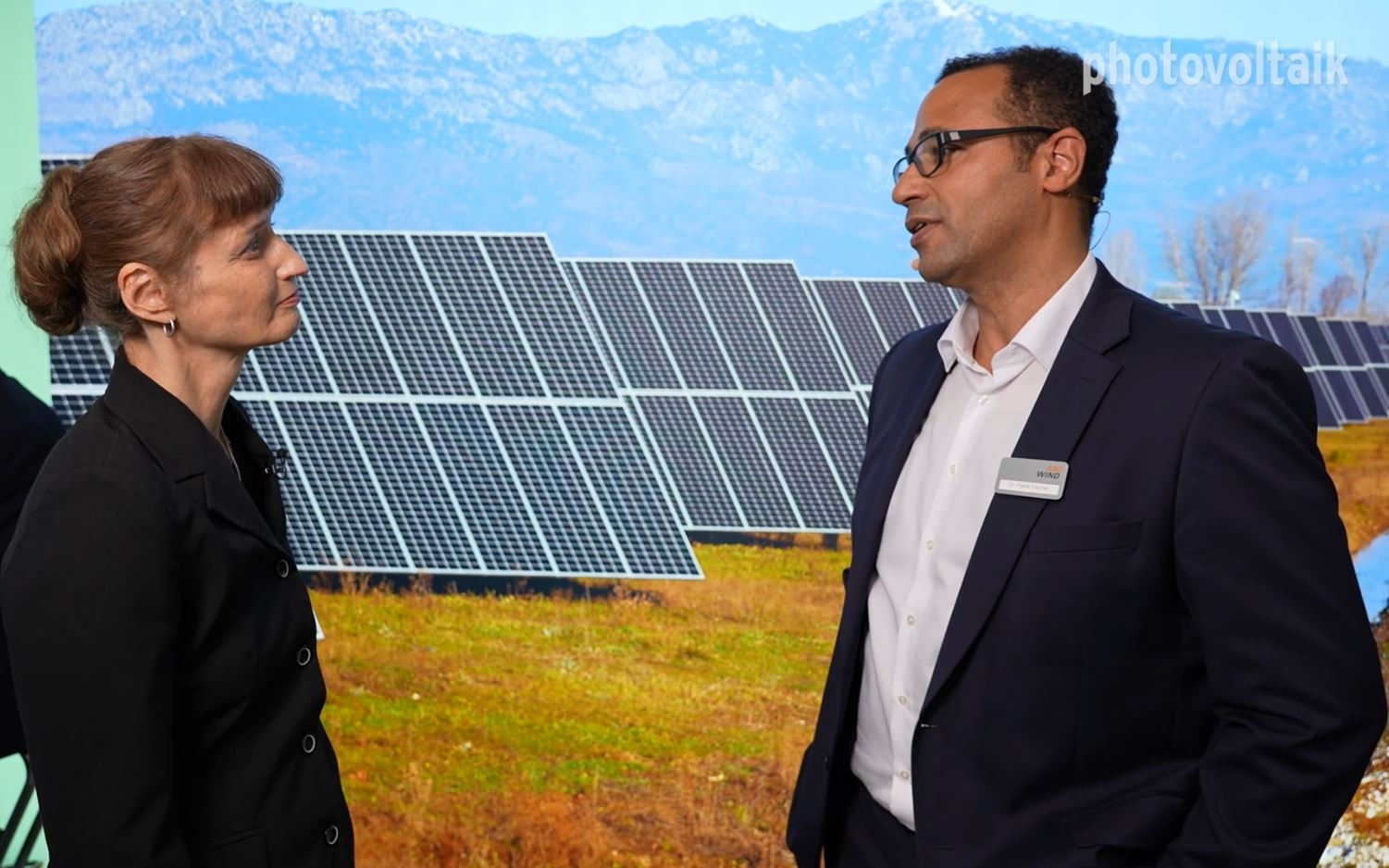
What major storage projects are you operating at the moment, also internationally?
At Abo Wind, we have a total project pipeline of 19 gigawatts. One gigawatt of this is battery storage, either as a stand-alone or as a hybrid project. We have particularly large projects in the UK. There, we are currently connecting a project with 50 megawatts and 25 megawatt hours to the grid. Among other things, we also provide network services there. In Germany, we will connect 46 megawatts to the grid this year.
What concrete applications are there for large battery storage systems on the grid?
First of all, it is very important to understand that battery storage is central to the energy transition. Only energy storage enables the volatile renewables to actually deliver the maximum energy, i.e. to become base load capable. In projects with hybridization, you connect wind and solar together, that gives you stabilization. Of course, this all gets much, much better if you add a battery. In Germany we will add two new projects this year as part of innovation tenders. There, the solar generator is operated in parallel with the battery storage. However, asymmetric network services are not yet possible: The battery is not be charged up from the grid. That is what’s missing to actually develop the full potential.
Germany has the innovation tenders, other countries do not. Is this business still worth it?
Yes, of course. Look at what is happening in the world, how fast energy prices are rising. Many industrial customers are constantly asking us what we can offer to counteract these high prices. How can we stabilize the energy supply? Energy security is a very, very important topic these days. Natural gas is becoming rarer and more expensive. This makes battery storage more competitive than ever before.
Is this also worth it for industrial customers?
Many things play a role for industrial customers. If there is an opportunity to set up an open-space system, to increase self-sufficiency, to generate cheap electricity yourself or to stabilize the energy supply, these can be aspects. In addition, specifically looking at Germany, grid fees favour a consistent energy supply. That means you can save network charges if you consistently reach 7,000 hours. A large customer who purchases ten gigawatt hours per year can save up to a six-figure sum. This means that battery storage pays for itself in just a few years. (Abridged, NW/HS/mfo)
Watch the full video with Dr Patrick Fischer here.
Watch all our CEO-Talk with decision makers of our industries.
(Except for the headline, this story has not been edited by PostX News and is published from a syndicated feed.)

